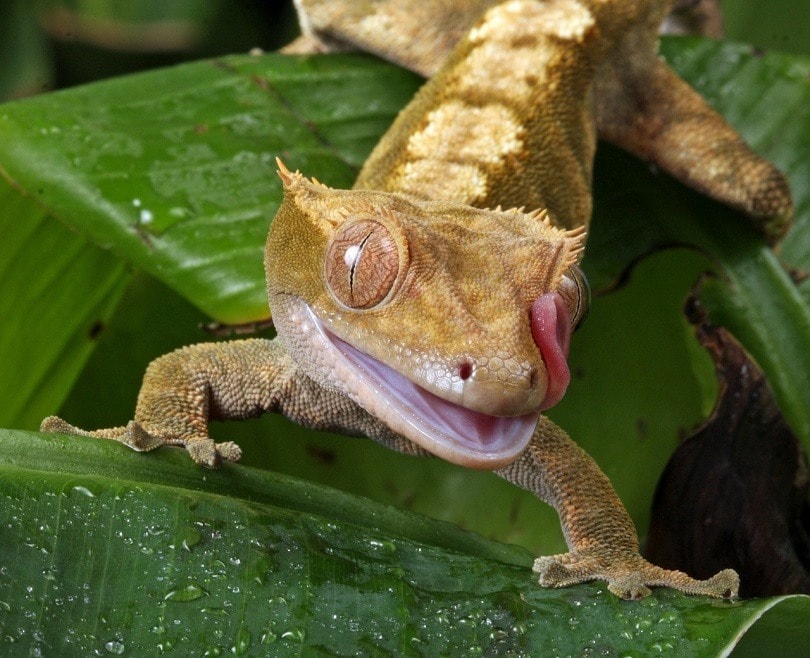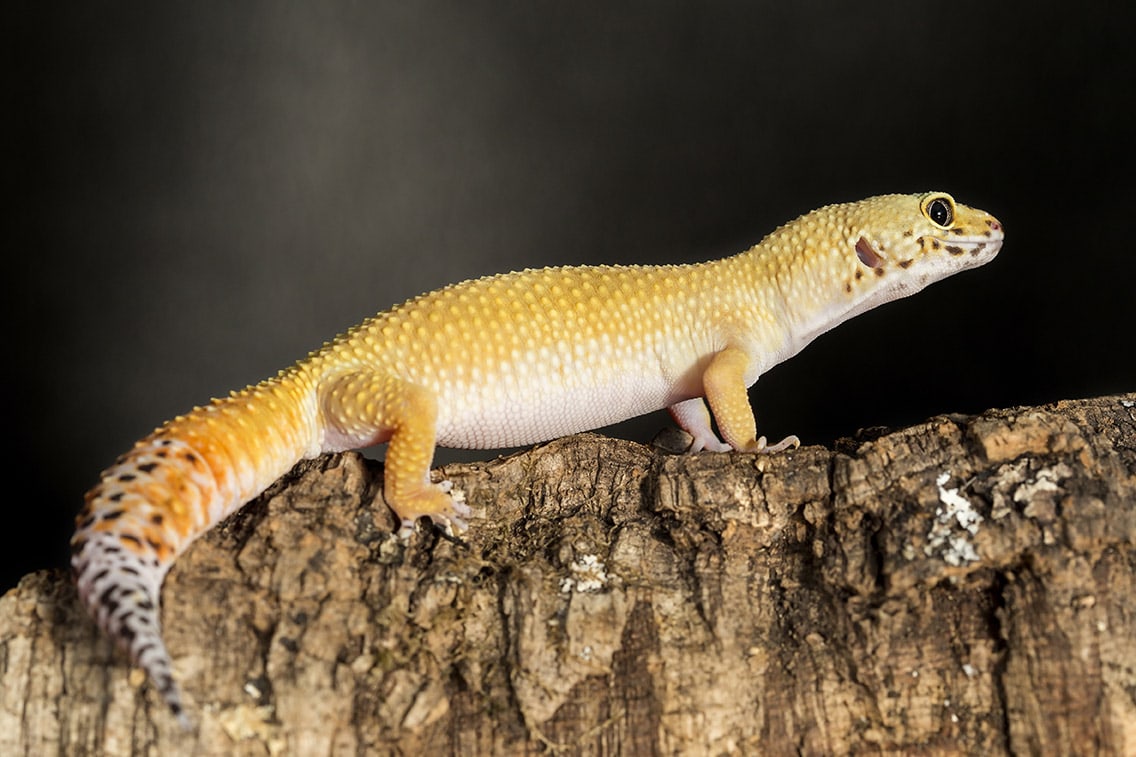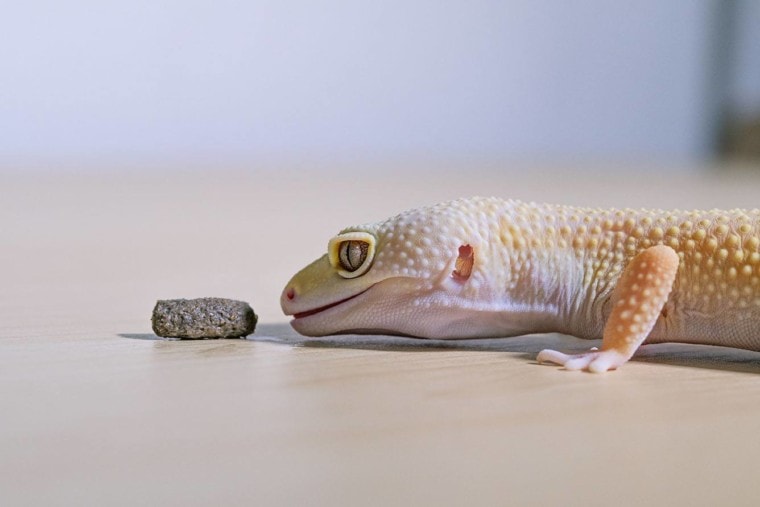
One of the scariest things for any pet owner is when their pet gets sick. The first sign that your pet is sick is usually a change in behavior, including refusing to eat. However, the leopard gecko is notorious for its hunger strikes, and there are several causes besides sickness that can keep your pet from eating.
If your leopard gecko refuses to even touch its food, keep reading as we look at several reasons and what you can do to get it eating again.

The 9 Reasons Your Leopard Gecko Is Not Eating
Let’s look at the most common reasons that your leopard gecko might not be eating, along with solutions.
1. Sick
When your pet is sick, one of the first signs is often a decrease in appetite. Several illnesses can result in a loss of appetite, including metabolic bone disease, kidney failure, and liver failure.
Solution
If your gecko is getting older, there is a good chance that illness is to blame for its inappetence. If the lack of eating is accompanied by other signs, like a lack of mobility, it’s important to take your leopard gecko to the vet immediately to have it looked over.
2. Cold
One common reason leopard geckos stop eating is that the environment is too cold. If the terrarium temperature is too low, the leopard gecko will slow down its bodily functions and not consume food.
Solution
To get your leopard gecko eating again, you will need to keep the terrarium temperature between 94 and 97 degrees Fahrenheit using a halogen bulb or another heating method. If you already have one of these bulbs installed, make sure it is operating correctly, and remember to change the bulb every 6 months, as the bulb loses its ability to create UV light long before it burns out. The easiest way to check the temperature is with a terrarium thermometer; make adjustments accordingly.

3. Rehoming
If you just brought your leopard gecko home, it might be that your pet is not yet used to its new home. It can often take several days for your pet to become comfortable in a strange environment.
Solution
Leopard geckos that are rehoming will usually begin to eat on their own again with no intervention. Some will eat in a few days, while others can take weeks. The leopard gecko can live a long time without food, but if it lasts longer than about 3 weeks, we recommend taking your pet to the vet.
4. Impacted Feces
Impacted feces can occur if your leopard gecko eats too many hard-shelled bugs. The chitlin that they contain obstructs the colon, resulting in your pet refusing to eat.
Solution
A diet of mealworms and crickets is best for minimal risk of fecal compaction. Ensuring that your pet is properly hydrated is also important, so make sure there is a clean water supply in the habitat. You can also try to loosen the impaction by giving your pet frequent warm baths. Gently rubbing the belly while bathing can also help break up the stool. If the problem lasts more than 3 weeks, you will need to take your gecko to the vet.

5. Injury
Scratches, cuts, and other wounds can cause discomfort in your leopard gecko, and your pet may not want to eat while it’s in pain.
Solution
Some wounds can take a long time to heal, so you will need to be patient. Once your pet is feeling better, it should begin to eat again as normal. Make sure to coat the insects with a vitamin-rich calcium powder to help replace what was lost.
6. Vision Problems
It could be that your pet is unable to see its food due to poor eyesight. Poor eyesight is more common in older or injured leopard geckos, but any can be affected.
Solution
If you suspect that your leopard gecko is having difficulty seeing, we recommend taking it to the vet to see if the problem is fixable. Vision-impaired geckos will not be able to catch crickets, so they will need a diet of mealworms placed close by their mouth. A common cause of temporary blindness in geckos is an incomplete shed. If there is not enough humidity in the tank, the skin over the eyes can become stuck. Ensure that your terrarium has a properly installed moist hide so the gecko can properly shed.
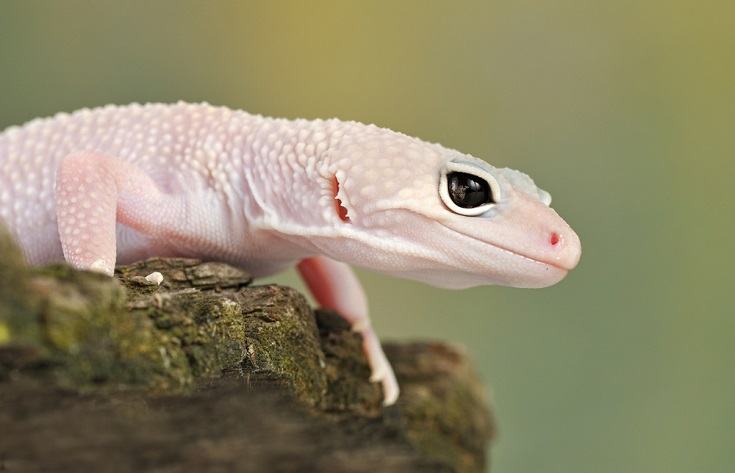
7. Overfeeding
The reason that your leopard gecko is not eating could be as simple as you have already fed it enough and it is not hungry. Asking your pet to eat more might result in indigestion, upset stomach, and vomiting.
Solution
Your pet should start to eat again in a few days or weeks when it becomes hungry, and you shouldn’t need to do anything else. To prevent it from happening again, pay close attention to portion size. Introducing smaller insects might help get it eating again.
8. Stress
Stress can cause your leopard gecko to stop eating. The most common source of stress for leopard geckos is a tank companion. If you have recently purchased a tank mate for your pet, a refusal to eat could mean it rejects the new animal. Loud noises and bright lights can also increase stress levels.
Solution
If you think that your gecko is angry over another tank mate, you can be patient and give it a few weeks for your pet to accept it. If it takes more than 3 weeks, you will need to separate them so your pet can return to eating. If something else is causing the anxiety, you can try moving the terrarium to another location in your home to see if it begins eating.
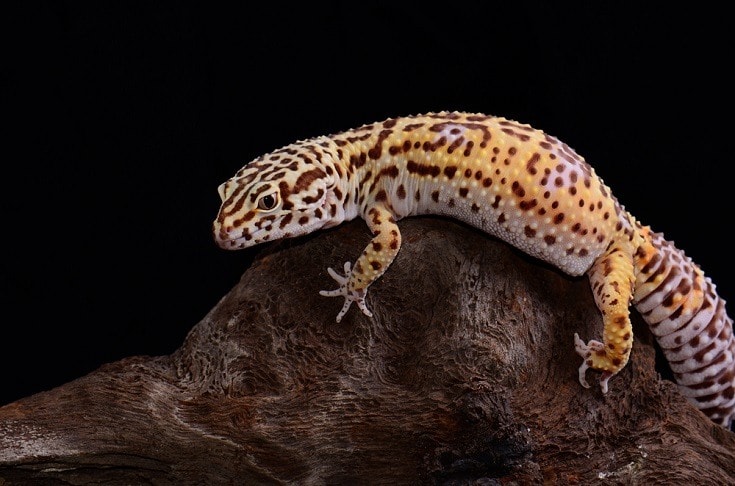
9. Breeding Season
Geckos may stop eating during the breeding season. Males will become distracted and could completely forget to eat for several weeks. Females will often choose not to eat.
Solution
It’s common for leopard geckos to stop eating during the breeding season. The best thing that you can do is be patient and wait for the season to be over. You can try offering small amounts of food to see if they will eat it, but don’t be too hopeful.
One of the best sources of long-term nutrition for a leopard gecko is Dubia roaches. These geckos love hunting the roaches down and consuming them afterward. Make sure you provide them with an adequate supply of Dubia roaches to sustain their good health.

More Tips

How Long Can My Leopard Gecko Go Without Eating?
While there is no specific number of days that a leopard gecko can go without eating, most can go at least a month before it becomes serious. In almost all cases, it will begin to eat again when it’s ready.

Final Thoughts
Since leopard geckos can live so long without food, you don’t need to be overly worried if they stop eating for a few days. If you are concerned after a week, you can try to offer waxworms, as these are likely one of your pet’s favorite foods. If you don’t get a response with the waxworms, start to look for signs of fecal impaction, injury, and illness. Warm baths can relieve impaction, help wounds heal faster, and even reduce stress levels. If your gecko refuses to eat after 3 weeks, we recommend contacting the vet to get your pet checked out.
- See also: 10 Fascinating & Fun Leopard Gecko Facts
Featured Image: ryomaQ, Shutterstock
